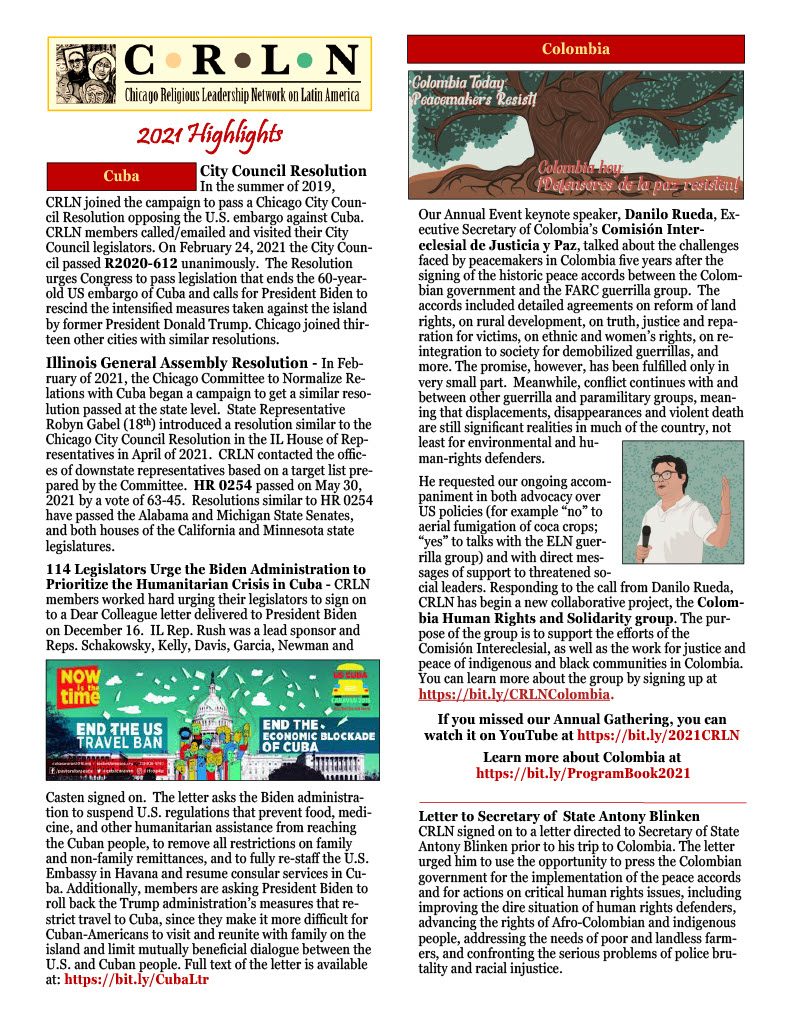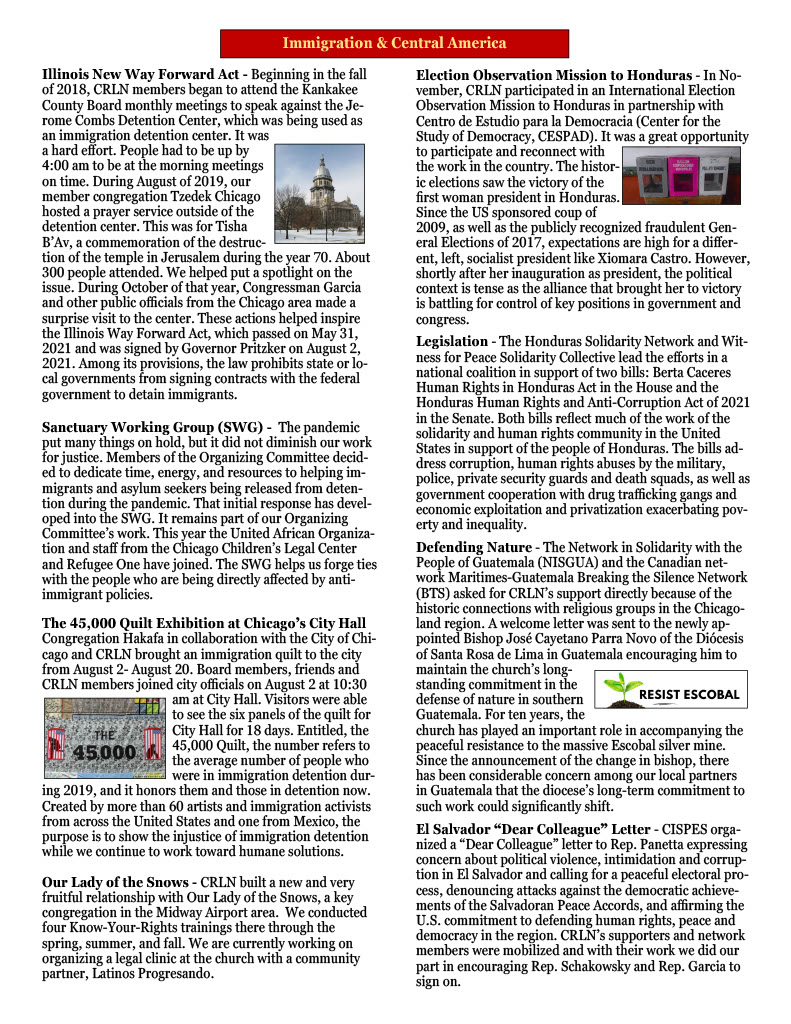Archive
by Claudia Lucero & Juan Carlos Hernández
The foreigner who resides with you must be to you like a native citizen among you; so you must love him as yourself, because you were foreigners in the land of Egypt. –Leviticus 19:34
Other than calling for justice for those at the bottom of society, there is perhaps no social issue addressed more in scripture, especially the Old Testament, than the admonishment to “welcome the stranger” and to treat the foreigner the same as the citizens of your nation. It is of little surprise that this is a central theme given the long years of sojourning through the desert experienced by the Jews. As a result, the three Abrahamic faith traditions place a high emphasis on the just treatment of the migrant. Other faith traditions have similar principles. How appalling is it then that people who claim to be people of faith are the very ones at the heart of persecuting the stranger? That stark and shameful reality reached an apex with the recent callous shipping of migrants from Texas to locations across the United States, often to places that were, at least initially, not prepared for such a political stunt and who could offer limited resources for the newcomers. Yet that act of fear and hate was met with acts of love in the places where these migrants arrived. Chicago was one of these places and CRLN was at the forefront of efforts to welcome the stranger.
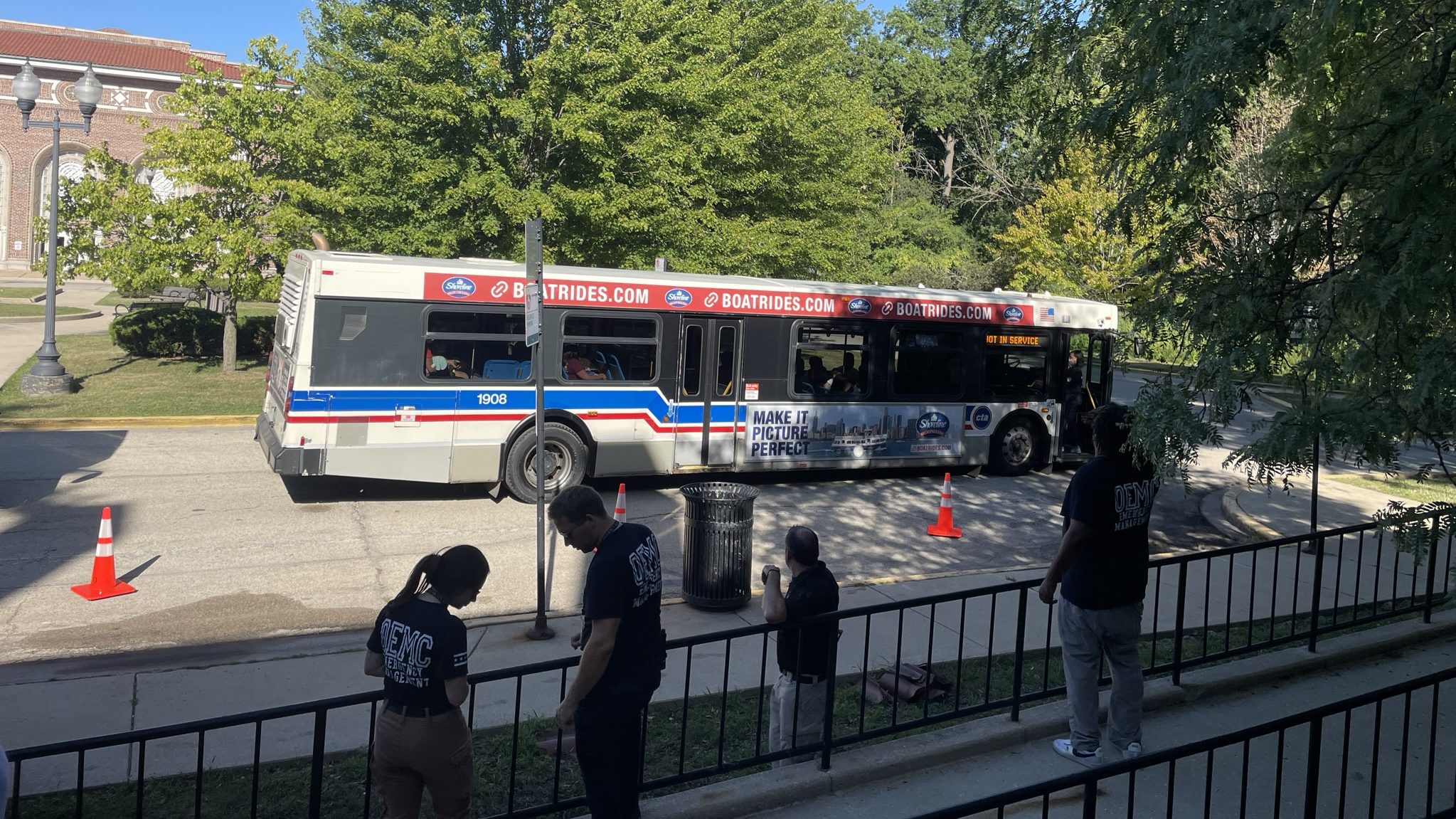
New arrivals sent from Texas to Chicago arrive at the welcome center after resting for the night in a local shelter. Municipal and state authorities teamed up with nonprofit groups to welcome these immigrants to Chicago.
The economic and political conditions in Central America in particular, and throughout the Americas, continue to be the generator of millions of refugees and displaced persons. Certainly, there have been positive developments in the past year. The triumph of democracy in Honduras, Colombia, Chile, and Brazil is to be celebrated. But so much of the Americas, especially our closest neighbors in Central America face abominable levels of poverty and repression at the hands of governments who are increasingly in the mainstream of reactionary right-wing populism, a global political movement.
The current governments of Guatemala and El Salvador are perfect examples of this. Alejandro Giammattei, president of Guatemala, and the country’s former head jailer ironically spent time in one of the jails he managed, as he was complicit in an inmate massacre. Is it any surprise that his answer to Guatemala’s deep social problems is more violence? This has led to the undermining of the nation’s limited democratic mechanisms like the courts, and increased budgets for the police and the military, support the U.S. is all too happy to encourage and aid.
In El Salvador, President Nayib Bukele is known primarily for two things: gambling on the nation’s economy by embracing cryptocurrency, and a law-and-order crackdown that quite literally has put every young male in the country in danger of death or jail. Thousands of Salvadorans languish in prisons that can only be described as hell on earth.
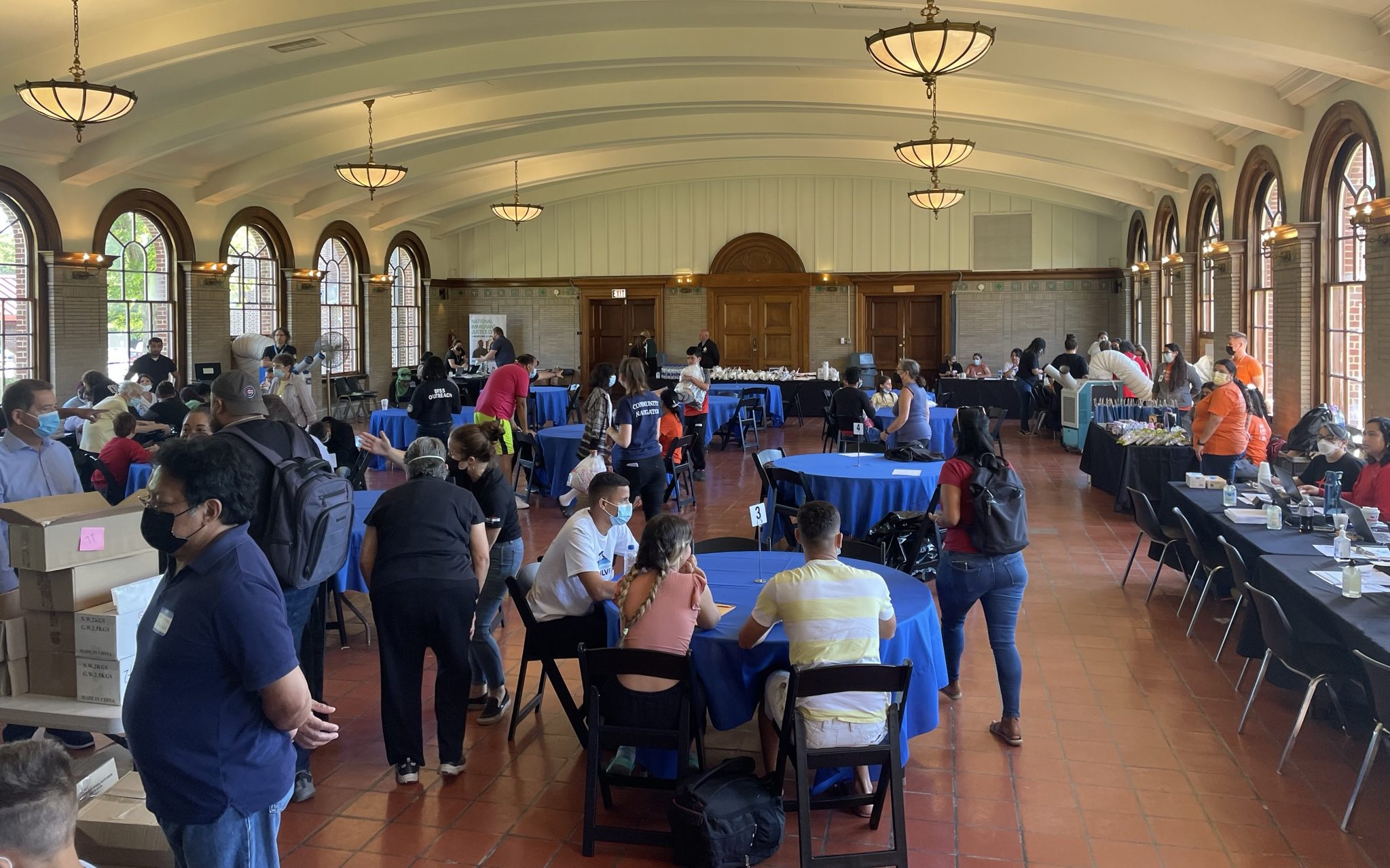
Nonprofit groups set up a processing center for new arrivals to begin the intake process. Immigrants were able to receive health support and begin a legal evaluation process at the center.
Large political questions must always be viewed from the ground up, from the perspective of people who must live with the consequences of policies made by people in government. That was again made clear this past year. The people of Venezuela have suffered from the current economic conditions in their country made worse by the sanctions imposed by the United States. The sanctions have decimated their economy. And so, like their brothers and sisters in Central America, Venezuelans have been forced to migrate. They have walked to other countries throughout the hemisphere, including the United States, to where they hoped to find new opportunities. Since last year, thousands have crossed into the country. Certain politicians have made them into political pawns hoping to stir up anti-immigrant feelings, and certainly, they have. However, these actions have also stirred us into action, love, and solidarity!
CRLN has been one of the key organizations in advocating for the best wrap-around services for these newcomers. CRLN staff and members were at the welcome center when the first group of migrants was processed on September 2nd. We yelled, “Welcome!” and shook their hands as they took their first steps toward settling into their new home, Chicago. We listened to their stories and experiences. We connected with them and helped them see that we would stand with them in solidarity.
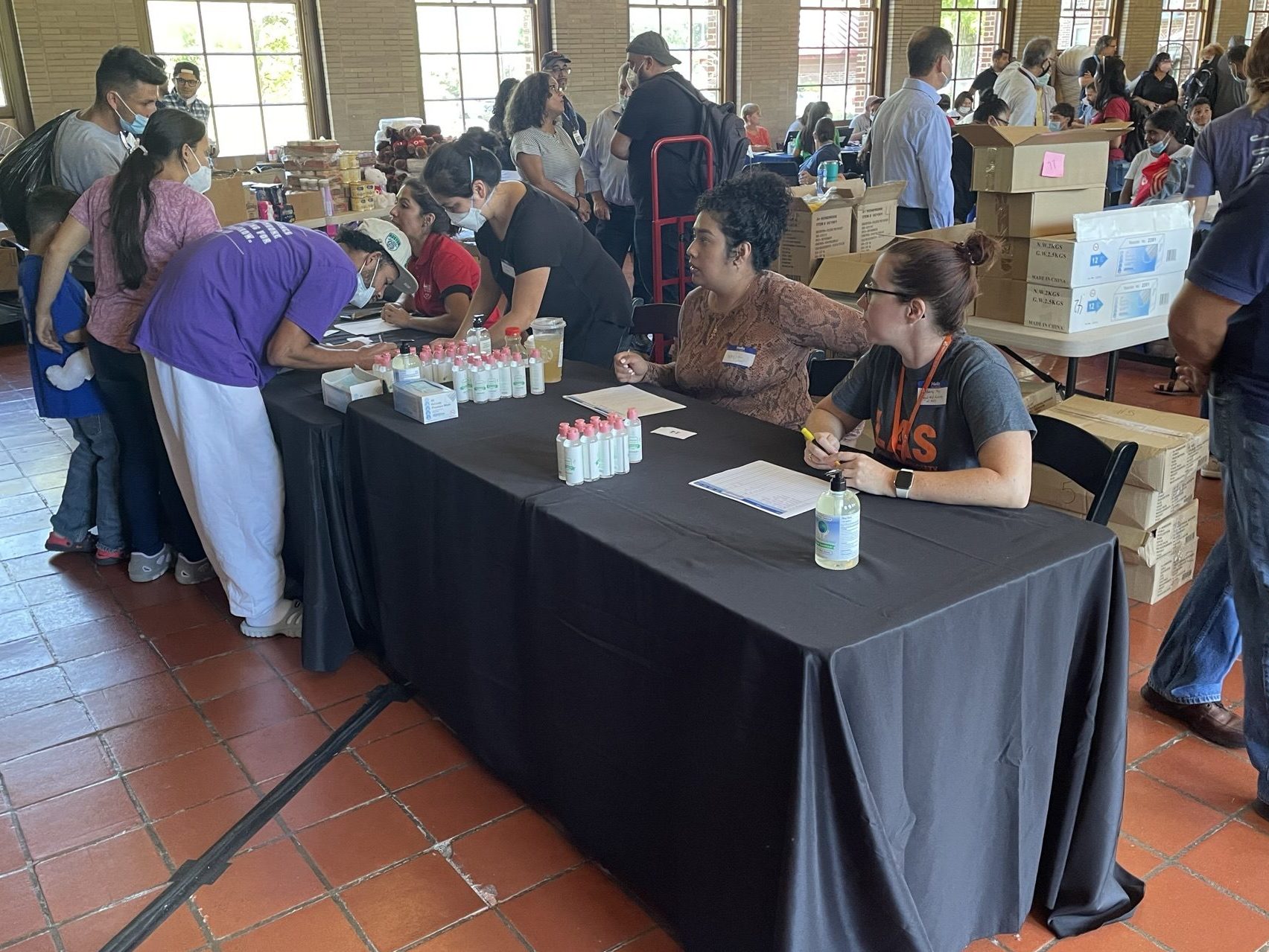
A group of newly arrived immigrants begins the intake process in Chicago. Immigrants were able to receive care and begin processing their cases at the city’s welcome center.
CRLN was present for four reasons: 1) our long history of advocacy work. 2) a staff who have firsthand knowledge of the difficulty of migration and 3) our Sanctuary Working Group, which has been accompanying immigrants and asylum seekers for the past two and a half years. And number four is YOU, our supporters, members, and our network. You make our work possible! Be assured that we will continue to accompany and advocate for and with our immigrant brothers and sisters. Since 2020, we have accompanied more than 100 people from Africa and Latin America.
With our congregational partners, we have helped people to gain a foothold in our country and create a stable life. Because this need is constant, we are hoping to expand our hospitality work in the new year by renting a property and hiring new staff to help us better accompany people in that space. It is an exciting development for CRLN and one we hope you will support by donating online at https://bit.ly/CRLNEndofYear or by downloading the donation form and sending it with your check to our office.
Please join us in making manifest our faith by “welcoming the stranger”.
Sincerely,
Claudia Lucero, Executive Director
Juan Carlos Hernández, Immigration Program Coordinator
by Jhonathan F. Gómez / July 5, 2022
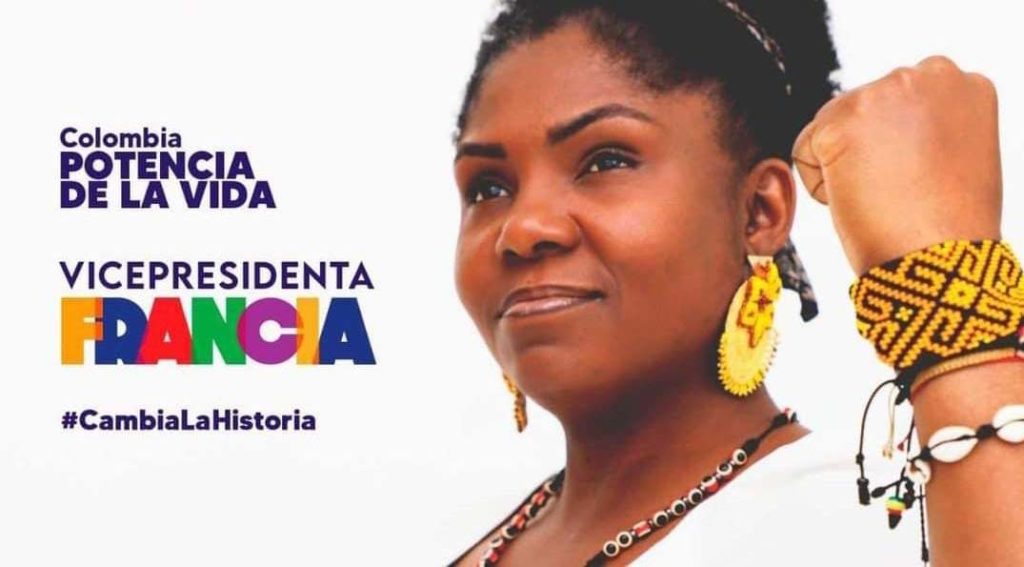
I trust that you, like me and many around the world, are still celebrating and feeling the hope of the people’s victory in the recent presidential elections of Colombia. Just as we saw the hope of new beginnings in Chile and Honduras, this victory was only made possible by the unstoppable and ongoing work of social movements, particularly the resistance of Indigenous communities. In this moment of hope and celebration, we must also acknowledge that much has been sacrificed to get here. My optimism for this new chapter in Colombia’s history comes from people like Francia Marquez, the new vice-president. She is the first Afro-Colombian woman to hold that title and is a remarkable environmentalist and human rights defender. As she stated, “My task is to guarantee the rights of these excluded and marginalized territories, to guarantee rights for Afro-descendant and Indigenous populations.” Those words, backed by decades of work in defense of human rights, give me hope, and joy and fill me with energy.
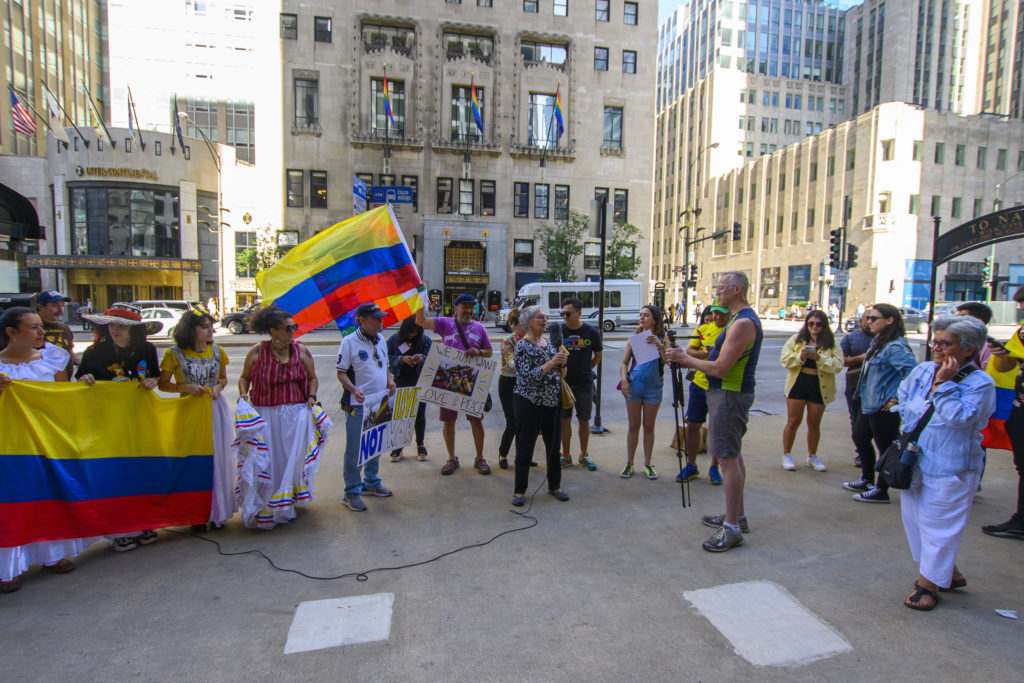
On June 19, we reaffirmed our solidarity with the people of Colombia by leading a rally outside the Colombian Consulate. We gathered hours before the polls closed for the run-off to the presidential elections. This was an emergency action that we coordinated with Colombian election observers. We were happy that our sister organizations were present and signed a statement which we delivered to the staff at the Consulate. The statement was signed by eight Chicago organizations and demanded transparency, justice, and peaceful elections. The document was also a way to remind all of us that the United States has committed $453 million in defense aid to Colombia for 2022. A figure that we take seriously because this is the direct opposite of how aid should be spent. Defense aid is military aid, and the military does not support peace, democracy, or justice.
I’ll end with a poem by Colombian poet Gonzalo Arango.
Revolución
Gonzalo Arango
Una mano
más una mano
no son dos manos
Son manos unidas
Une tu mano
a nuestras manos
para que el mundo
no esté en pocas manos
sino en todas las manos
Revolution
Gonzalo Arango
One hand
plus one hand
does not make two hands
They are hands together
join your hand
to our hands
so the world
is not in a few hands
but in all our hands
In permanent solidarity and resistance,
Jhonathan F. Gómez
by Jhonathan F. Gómez
From the 19th to the 27th of March of 2022, I had the unique opportunity to participate in a historic delegation to Honduras and Guatemala. Witness for Peace Solidarity Collective in collaboration with SOA Watch, CISPES and NISGUA organized the trip with the goal to take progressive Congressional Representatives to meet and learn from human rights defenders of Guatemala, El Salvador, and Honduras. This trip has marked my work in the Latin América program. You can read my full report below:
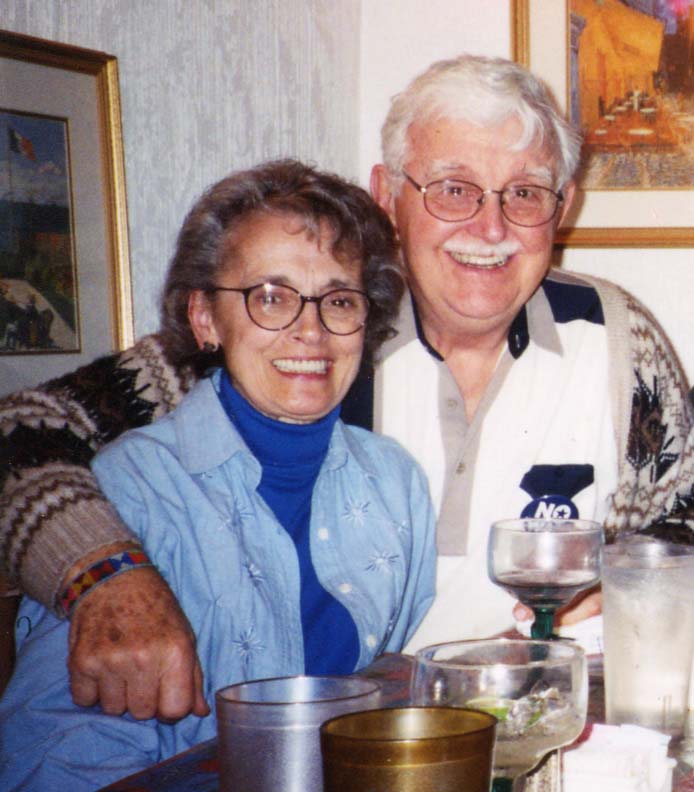
Richard ‘Dick’ Heidkamp (May 9, 1931 – March 12, 2022)
Ann R. Heidkamp (Dec 27, 1930 – Feb 28, 2021)
Remembering Dick & Ann
A Reflection Written for the March 18, 2022 Celebration of the Lives of Dick and Ann Heidkamp
by Sharon Hunter-Smith
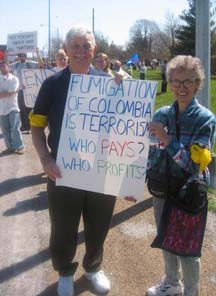
CRLN has been truly blessed to have the active participation of Dick Heidkamp as a member, Board member, and volunteer. “A life of service,” while an accurate description of Dick’s values and actions, just doesn’t begin to capture the exuberant experience we all had around Dick. Yes, he offered service to our organization, but everything he did with seriousness of purpose and dedication to peace and justice also felt much more like a dance party or a night at a comedy club, especially when he showed up with his wife Ann, the straight person in their comedy routine.
Dick was a skilled fundraiser and a terrific FUN-raiser, as Ann herself once said. As a fundraiser, Dick served on our Board’s Development Committee and coordinated CRLN’s 25th Anniversary Campaign. He accompanied us on visits to potential donors and taught us his craft. He taught us that we could do more than we thought we could and that people appreciated the opportunity to hear about and support our programs. Dick also threw himself into planning for CRLN’s 20th Anniversary Celebration, securing the venue, finding vendors to provide the beer, and helping to do set up and then welcoming people to the event.
Then there were the days when he and Ann came into the office to help with mailings. Putting labels and stamps on envelopes, folding and inserting letters and reports—not exactly everyone’s idea of a good time—but if Dick and Ann were coming, everyone looked forward to participating. They always insisted on bringing treats with them, and their banter with each other and funny storytelling changed the mailing workdays into a party. Pretty soon, they would have us all laughing.
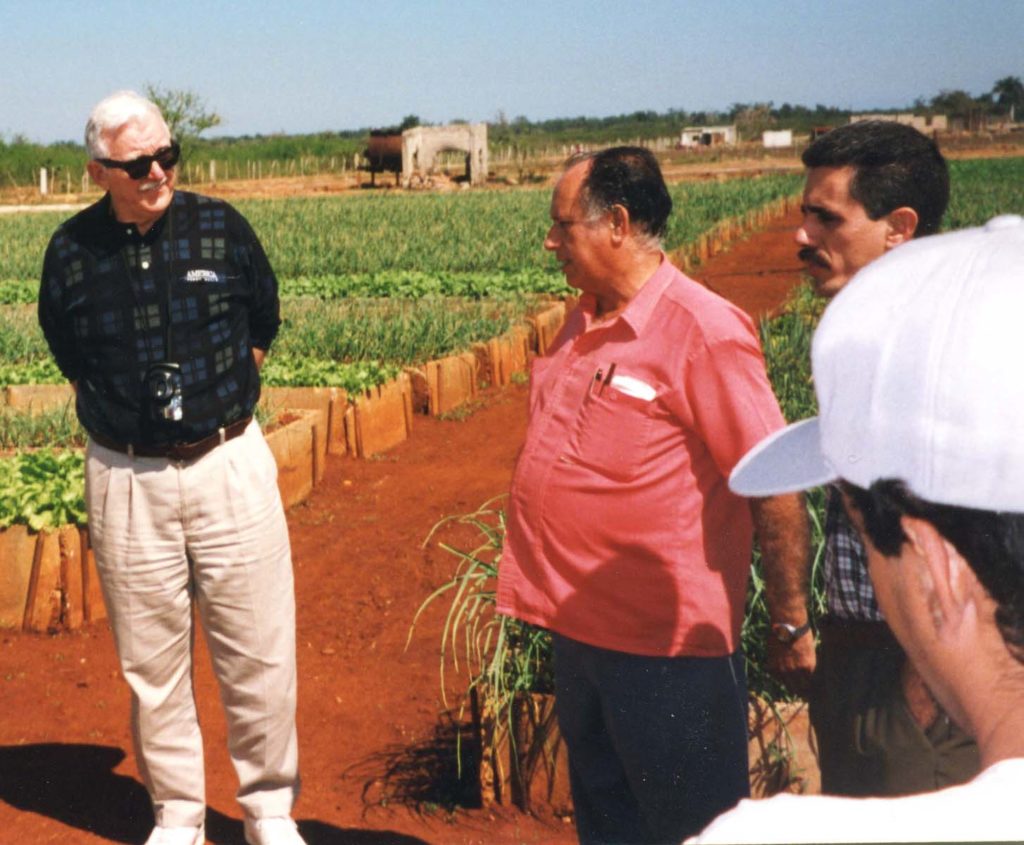
Dick attended our educational events, showed up for our demonstrations against militarism and for human rights in Latin America, and went on our delegations to Cuba (pictured here), El Salvador, and Guatemala. He would often bring others along with him—he was like the Pied Piper for CRLN events. At the 25th Anniversary of Archbishop Oscar Romero’s assassination, he was with us on a delegation to El Salvador. The large outdoor area where the commemoration events were going to take place was filled with people inspired by Archbishop Romero, both from El Salvador and from many other countries. Salvadoran folk music was playing to give people something to listen to while they waited, and suddenly, in the crowd behind us, we saw a circle of people forming, laughing and clapping. Guess who was in the middle? Dick Heidkamp with a wide smile, dancing with a someone he had pulled from the crowd. He was a one-man ambassador, evoking friendship and joy.
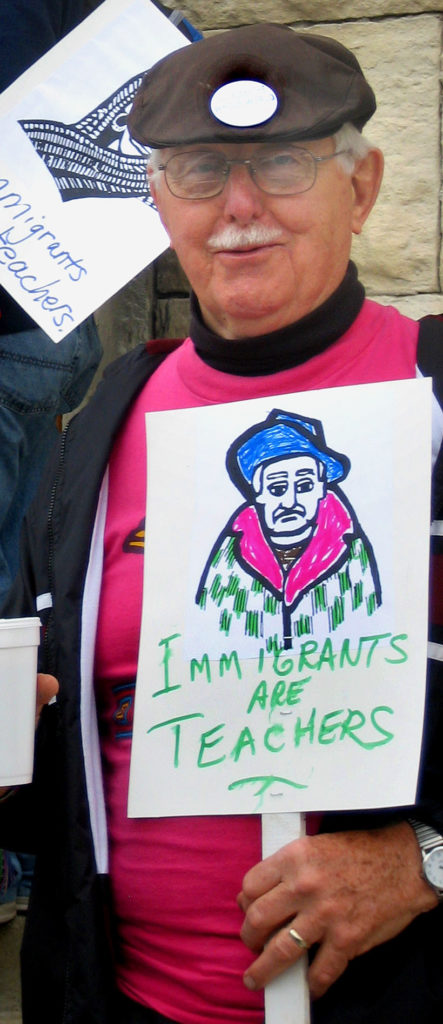
Dick had a passion for travel and willingness to let us honor him by creating the Heidkamp Travel Scholarship Fund in his honor. He understood the importance of travel, not as a tourist but to listen to the voices of those whose words do not often make it into U.S. news media and to carry their words back to our legislators. He often accompanied us on visits to members of Congress to do just that. In 2012 Rep. Jan Schakowsky honored Dick’s activism in a statement read on the floor of the House of Representatives.
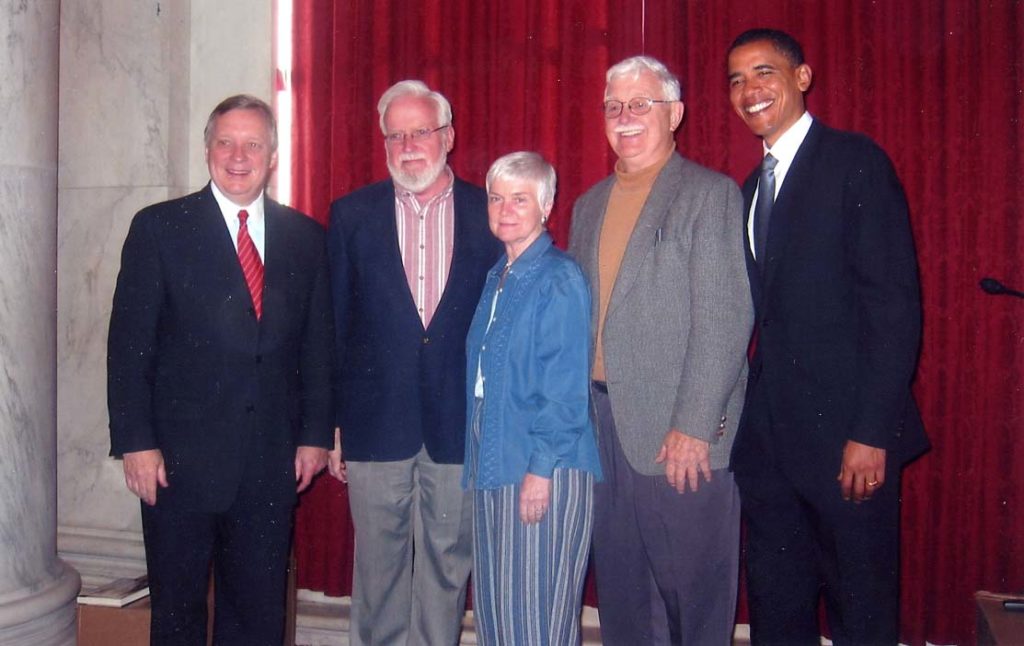
Dick was an outsized personality with extraordinary energy and an outsized heart for adults; for children; for those suffering from poverty, oppression or discrimination; and also for cats and for his backyard vegetable garden. His love for Ann and hers for him was often expressed in teasing each other mercilessly, always with huge smiles on their faces. We miss them greatly already, but are so thankful we were able to walk together on the same path for so many years.
In a 2015 interview for Story Corp Dick and Ann recounted how they first met and fell in love. You can access that interview HERE.
CRLN has worked with other organizations on a workshop for Ecumenical Advocacy Days called Crisis and Hope: Activists Organizing for Rights in Guatemala and Honduras for Wednesday April 27 from 10:00 – 10:45 am CDT
In Guatemala, brave activists, judges, and prosecutors confront a
rapidly-closing space to defend rights and the rule of law. They are being jailed, threatened, and
forced into exile by corrupt actors in government, security forces, and the private sector. In
Honduras, after a dozen years in which corrupt and abusive governments committed grave abuses and
restricted space for civil society to organize, a newly-elected government working with social
movements offers hope. Corruption and human rights abuses are major factors driving massive
migration from these countries.
This workshop will teach the audience about the immediate human rights
situation in Guatemala and Honduras, featuring leading activists from each country. It will also
answer the question, What is the U.S. role and how can you encourage our government to support,
rather than undermine, the activists working for positive change?
Speakers: Claudia Samayoa from the Guatemalan human rights group UDEFEGUA (confirmed) and Miriam
Miranda or other Afro/indigenous leader from Honduran Garifuna organization OFRANEH (to be
confirmed); Lisa Haugaard, Latin America Working Group (confirmed);
Moderator, Giovana Oaxaca, Evangelical Lutheran Church in America (confirmed).
Time: Wednesday, April 27 10:00-10:45 CDT
Sponsored by: Latin America Working Group, Evangelical Lutheran Church in America, Chicago
Religious Leadership Network on Latin America, Mennonite Central Committee U.S.
Interpreter: Kathy Ogle (confirmed). Language: Spanish to English, English to Spanish for
speakers.
Monitor: Yadira Sánchez-Esparza (confirmed)
Claudia Virginia Samayoa is human rights defender and a lay leader committed to justice in
Guatemala. She is the founder and president of the Unidad de Protección a Defensoras y Defensores
de Derechos Humanos – Guatemala (UDEFEGUA, the Unit for the Protection for Human Rights Defenders –
Guatemala) and Vice President of the Executive Committee of the World Organization against Torture
(OMCT). She is widely considered as an expert on human rights in Guatemala and the Central American
region, having received various international awards for her work. She spends most of her time
researching and supporting human rights defenders and organizations in Latin American by
strengthening their skills for self-protection. She is an active member of the Archdiocesan Commission of The Social Ministry of the Archdiocese of Santiago de Guatemala. She has completed postgraduate work in public policy and theology, as well as authored several books.
by Claudia Lucero, Executive Director
For everything, there is a season, and a time for every matter under heaven… Ecclesiastes 3:1-8
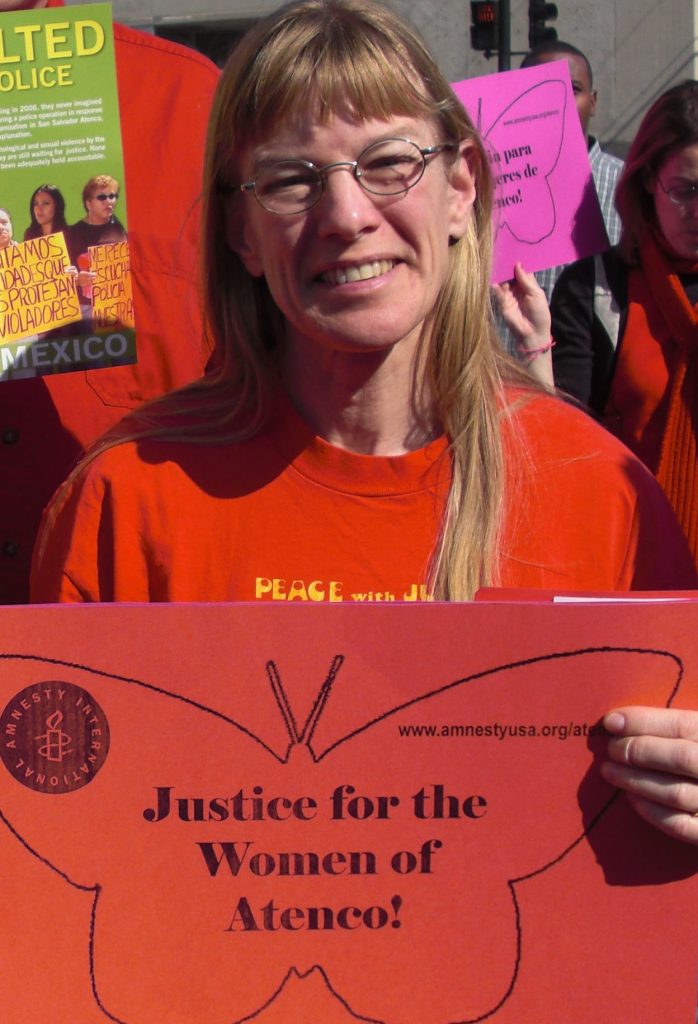
CRLN is undergoing a time of transition. All of the CRLN staff and I know all of you are sad that we will no longer have Sharon Hunter-Smith as one of our core staff. I am sure for many of you Sharon practically is CRLN. She has been a central part of the organization for over 16 years. It is difficult for us to imagine CRLN without Sharon playing such a significant role in our day-to-day work. Yet at the same time, we feel much joy at being present for the next stage of Sharon’s life, a much-deserved break from the duties she has so faithfully carried out each day for more than a decade and a half. I am purposely avoiding words of farewell here as they are so inappropriate in this case, as we know Sharon will remain a part of the extended CRLN family. On behalf of the CRLN staff and membership, I offer a collective message of deep gratitude for so many years of service to the mission of CRLN. They have born great fruit.
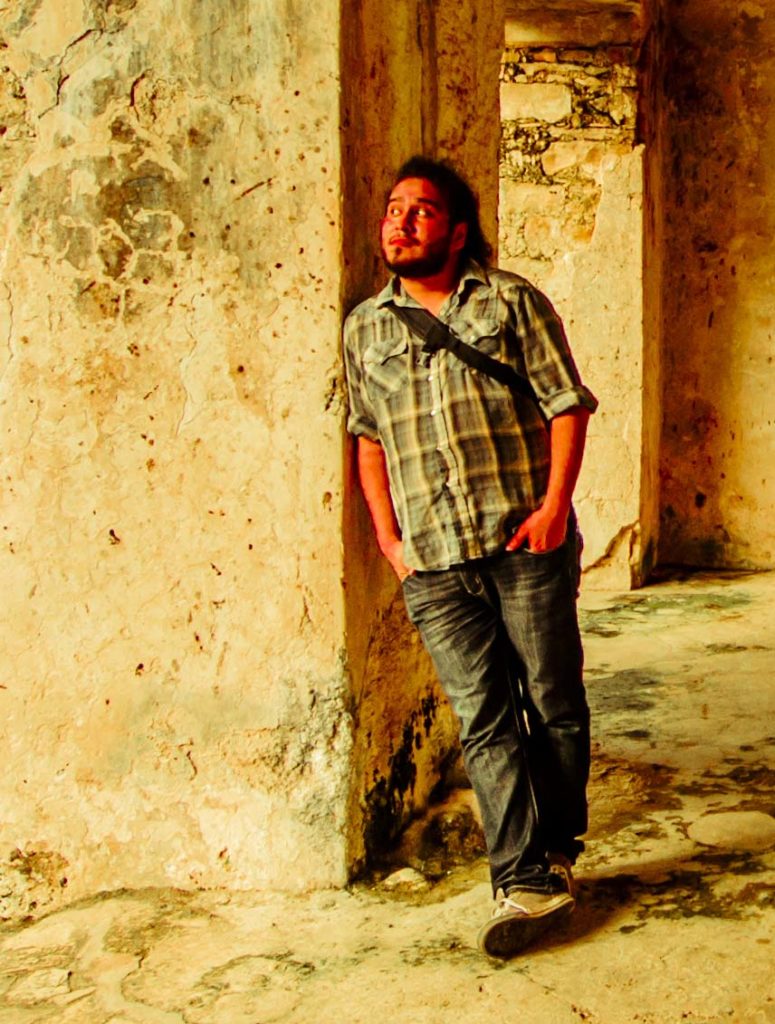
Just like most transitions the closing of one chapter is also the opening of a new one. As we mark Sharon’s departure we welcome aboard our new Latin America Program Coordinator, Jhonathan Gómez. I know many of you already know Jhonathan, but for those who do not, I wanted to offer a few words on his background. Jhonathan F. Gómez is a human rights defender, documentary photographer, artist, educator and father from Guatemala City. Jhonathan has worked with community and human rights organizations in Guatemala and the United States for nearly 15 years. Both his professional and personal work combine arts, multimedia and technology for the defense of human rights with a focus on immigrant and indigenous rights. Jhonathan, his partner, and their two children returned to Chicago in May of 2021 after living in Guatemala for 10 years. In Chicago, Jhonathan has worked as an arts youth educator and as a day laborer organizer with Union Latina de Chicago (Latino Union of Chicago). In Guatemala, he worked as the Coordinator of the Communications and Technology area for the Human Rights Observatory Unidad de Protección a Defensoras y Defensores de Derechos Humanos de Guatemala (Human Rights Defenders Protection Unit of Guatemala, UDEFEGUA). Jhonathan is not new to CRLN, in 2007 he participated in the formation of the Chicago New Sanctuary Coalition (CNSC) and has continued to support CRLN ever since. He is delighted to join the team and be part of CRLN’s legacy work of solidarity with Latinomérica. We are very excited to welcome Jhonathan to our staff and look forward to the great work we will do together to further both his personal and our organizational mission of defending the human rights of all “Americans”, including those within our national borders and those across the hemisphere.
CRLN is looking for a part-time Administrative Assistant to join our staff of four that coordinate an interfaith education, action, and advocacy network. Please share this announcement with your networks and communities.
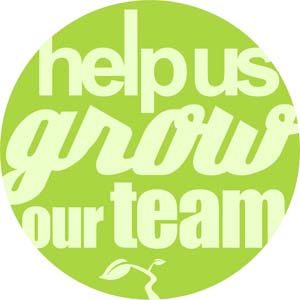
For over 30 years, CRLN has worked to open spaces for the voices of those in the Americas affected by U.S. policies and has worked in solidarity with movements for social justice and human rights. Through educational events, delegations, speaker tours, and regular issue updates, CRLN educates and mobilizes to empower people to advocate for positive changes in U.S. policy in the Americas with elected city, state and federal officials.
CRLN is an equal opportunity employer, dedicated to a policy of nondiscrimination in employment on any basis including race, creed, color, age, sex, religion, sexual orientation, ability or national origin. Women and people of color are encouraged to apply.
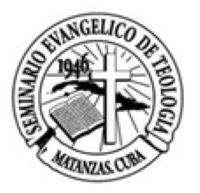
Evangelical Theological Seminary (SET) Communiqué on the Current Situation in Cuba
July 12, 2021
Dear sisters and brothers from SET partner Churches and Institutions,
We greet you in the name of our common Lord Jesus Christ and at the same time we thank you for your prayers and your expressions of concern related to the current situation in our country.
We are living an acute economic crisis and a crisis of values since the “special period” (decade of the 1990s) when the Soviet Union and socialist bloc collapsed; we have not yet recovered from those times. The crisis has become worse due to several factors.
On one hand, the aggressive policy of the governments of the United States against Cuba, particularly during the Donald Trump administration, which imposed 242 measures, most of them during the Covid-19 pandemic, against our people to try to smother us. On the past session of the General Assembly of the United Nations on June 23, 184 nations voted in favor of the Republic of Cuba against the blockade, with two votes against and three abstentions.
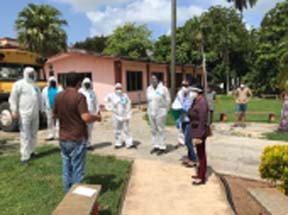
On the other hand, the Covid-19 pandemic that has brought negative consequences: the sad death of loved ones, which produces a great emotional impact on the people. Furthermore, the State loses millions of dollars above all due to the fall of tourism; despite that, it invests millions of dollars to try to heal and save the people. A significant example of that is the development of scientific research and the production of five vaccine candidates against Covid-19 (Soberana 01, 02, Plus; Abdala and Mambisa). Recently, Cuba authorized its Abdala vaccine in the midst of the worst outbreak of the pandemic. The project showed over 92 percent electivity in the application of three doses in the last stage of clinical trials, thus becoming the first Latin American vaccine. However, we are suffering a collapse of health institutions, particularly here in the province of Matanzas, the present epicenter of the pandemic, with dire scarcity of medicines.
Finally, the crisis has intensified because of the economic measures taken by the State at the beginning of this year. Even though salaries have increased and the government has reiterated the promise that no one will be defenseless, the truth is that the population has to pay five times more for food and electricity, water, gas, telephone and other services.
In the last few days, particularly the past Sunday, July 11, there have been disturbances, protests and vandalism, mainly caused by many of the accumulated dissatisfactions along these years that have worsened in the last few months. Moreover, these dissatisfactions have been fueled and promoted from outside the country – in a very opportunistic way – as well as from within through the social media. Even though disturbances like those from last Sunday have stopped in the country, there is an uneasy calm.
As churches, we are interceding for our people, giving comfort, care, producing and sharing sense, offering messages of faith – strength and hope, as well as dialogue, reconciliation and peace with justice. In addition, we are offering solidarity and witness, making diaconal work or service – through the Living Waters project, helping and serving food for the vulnerable, and through laundry for the elderly people.
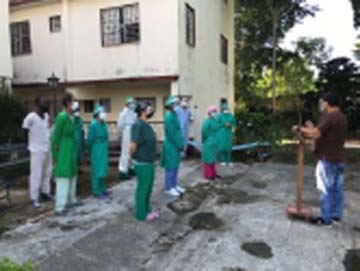
In the case of SET, last month the only Pediatric Hospital of the province of Matanzas exceeded its maximum capacity. The Ministry of Public Health of the province requested the help of the Seminary, to serve as an annex center of the Children’s Hospital to accommodate children who were considered suspicious of having contracted Covid-19 with their companions. We immediately agreed, following the long traditions of our institution of service to the civil society.
On June 20, we held a joint meeting, and both institutions worked intensely from that moment on to create the necessary conditions in the visitors’ building, ensuring the protection of the members of our community and the properties. We were able to fit out 120 capacities; some for those children positive to the disease and one accompanying parent; some for those who were suspicious of having it plus one accompanying parent. Besides, adults who are positive or suspicious of being positive to Covid-19 are also assisted here. We also host teams of 10 people, doctors and nurses for hospital aid. All capacities have been occupied since June 21, discharging those who recovered from the disease and transferring those who needed it to the Intensive Care Unit.
At present, 10 SET workers are working in the different areas. The kitchen team prepares food for 140 people every day including breakfast, lunch, dinner and two snacks. Even when the Ministry of Public Health is supplying with all the logistics, including foodstuff, SET offers the infrastructures, covering its expenses.
As to our teaching objectives, the Matanzas campus is closed at present and our Higher Ecumenical Institute of Sciences of Religions (ISECRE) continues working in virtual mode in the midst of “vacations”. We are getting ready to begin the new course 2021-2022 on August 30 and we are learning to conduct the process of teaching-learning in virtual mode and distance courses. To do this we have received help from partner institutions abroad that have graciously shared their vast experiences with us. We understand the great challenges we have ahead of us, i.e., the formation of renewed pastorate and leadership in the churches and other religious institutions serving in Cuba for the new times, for this Kairos of our nation, in a post-Covid period that will not be the same; and the proactive participation in the new society we are trying to build.
We greatly appreciate your consistent solidarity accompaniment through your prayers and through public advocacy to lift the blockade which damages directly our bilateral mission relationships. The blockade hinders the possibility to send financial resources to our Seminary, including other countries because of its extraterritorial nature. We request an international campaign to oppose a military intervention against our country incited by politicians in that country, especially those of Cuban origin. We will be grateful for any donations of medicines and food, for which we will send indications in the next few days.
Gratefully,
Your brother in mission,

Carlos E. Ham S.
SET Principal
Seminario Evangélico de Teología
Dos de Mayo Final, Apartado 1439, Matanzas, Cuba
Página web: www.setcuba.org

